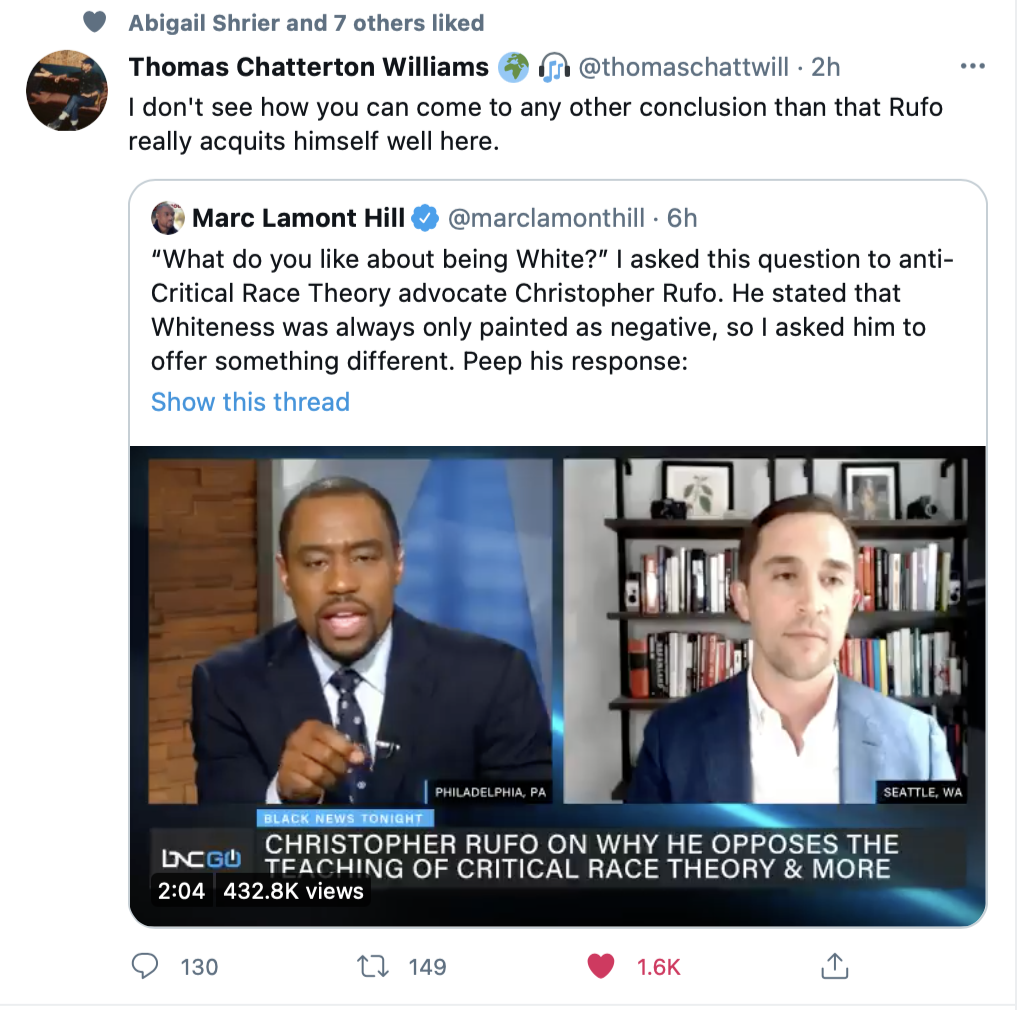I have often taken the position that Christopher Rufo takes during this interview. For me, a person’s color tells me next to nothing (and usually nothing at all) about that person’s history, experience, intelligence, passions, morality and admirability. It is my hope that, someday, we will all recognize that a person’s “race” will be one of the least interesting things about them, except, perhaps when I am taking portrait photos, were a person’s skin tone sometimes requires me to make adjustments to the lighting I use (see many of my portrait photos here for examples).
In this interview, Rufo refuses to by into any sort of racial ontology and insists that he wants to be evaluated as an individual. He disagrees that there are “black” versa “white” traits, qualities and aptitudes. I agree. And further, I would agree with Rufo (who writes often about these issues) that categorizing people by appearance divides us socially and breeds mistrust of each other. We are hurting each and disrupting our abilities to work efficiently to promote the general social welfare whenever we pretend that we are internally different based on external immutable characteristics. To do this is to invoke the logic of astrology and phrenology, with far far greater capacity to hurt innocent people.




You are obviously a privileged plaid person with no first-hand knowledge of the lived experience of the marginalized and sorely oppressed phrenologists. We have a long history of exploring people’s heads for bumps. I, personally, was able to diagnose a person as “dead” due to a raised ridge on his scalp surrounding a hole in his head measuring 20 centimeters in diameter. A medical examiner confirmed my diagnosis, but said without the rest of the body he was reluctant to determine a cause of death.
We phrenologists don’t need no stinkin’ rest of the body. We’re like New York Times reporters and make it up as we go. And, you gotta stop disrespectin’ us.
A proposed retort to those who are pushing CRT, by Joseph Massey:
The implication here is that there are two kinds of racism. There is Good Racism and Bad Racism.
A Good Racist is someone who demands that living people today should be judged by the actions of people in the past who shared similar visible inheritable physical traits. A Bad Racist is anyone who disagrees with a Good Racist.